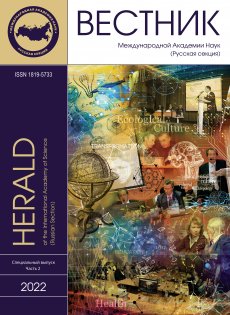ASSESSMENT OF THE IMPACT OF COMPLEX FACTORS ON THE PSYCHO-FUNCTIONAL SYSTEMS OF THE SCHOOL POPULATION OF THE METROPOLITAN METROPOLIS
Glebov V.V., Nikitin D.S.
Abstract
In the paper, the results of our own research are given, which assesses the impact of complex anthropogenic environmental factors on the cognitive functions of the school population of the metropolitan metropolis. The influence of social and technogenic factors on memory and attention of the control and compared groups of fifth grade schoolchildren (n=233: 109 boys, aged 11.4 to 12.1 years) living in different eco-social conditions of Moscow was studied. Depending on the eco-social conditions, the studied sample of students was divided into 4 compared subgroups: SG1 — environmental and social conditions were unfavorable, SG2 — environmental conditions were unfavorable and social were favorable; SG3 — environmental conditions were favorable, but social not. K is a control subgroup where environmental and social conditions were favorable. The analysis of the obtained research data on the «Schulte Tables» test showed the following: • work efficiency: 81.4% of the students of subgroup K had higher indicators than the subjects of subgroup SG1, SG2, SG3 (27.8%, 40.7% and 41.6, respectively); • the degree of workability: 89.1% of the students of subgroup K had higher indicators than the subjects of subgroup SG1, SG2, SG3 (30.9%, 41.3% and 42.4, respectively); • mental stability: in 73.5% of the control group, the indicators were higher than in the test groups SG1, SG2, SG3 (28.4%, 36.6% and 38.7, respectively), with the significance of differences in comparison by subgroups was p<0.05. Thus, the analysis showed a significant impact of negative factors of the city on the functional state of children, which manifested itself in the form of a decrease in the stability of attention and mental performance of secondary school students living in non-unfavorable environmental and social conditions.
Language: russian
Summary
Glebov V.V., Nikitin D.S.
ASSESSMENT OF THE IMPACT OF COMPLEX FACTORS ON THE PSYCHO-FUNCTIONAL SYSTEMS OF THE SCHOOL POPULATION OF THE METROPOLITAN METROPOLIS // Electronic periodical “Herald of the International Academy of Sciences. Russian Section”, 2022. Special Issue #2: 46—48
